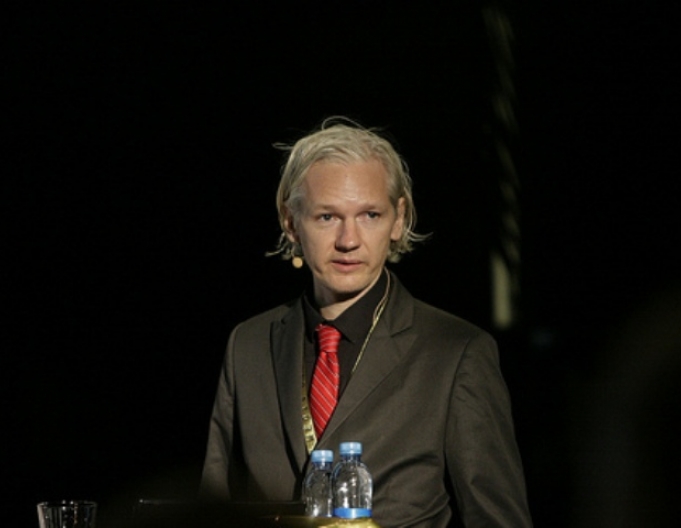Julian Assange and his former German cohort Daniel Domscheit-Berg blame each other for the circulation on the Internet of the identities of secret informants from diplomatic cables obtained by WikiLeaks. Now, with lives in danger, the organization risks quickly losing credibility.
This story of two bickering computer nerds vying for a place in history — of ideologues putting peoples’ lives at risk to serve some bizarre notion of “transparency.” What critics of WikiLeaks always feared would happen has now happened: the entire batch of 251,000 cables from US embassies around the world has become publicly available — un-redacted, which means that the names of informants are out there for all to see.
That could not only cost some people their job: in repressive countries and crisis areas, many people could be facing prison — or death.
How could this happen? It all goes back to the agreement between WikiLeaks founder Julian Assange and the British Guardian newspaper. WikiLeaks would give the paper access to certain files if the paper agreed to handle the material with utmost caution and not give anyone else access. Assange provided the paper with a secret password to decrypt the vast trove of data on a special server.
Following the uproar about WikiLeaks, however, and tensions growing between Australian-born Julian Assange and Germany’s Daniel Domscheit-Berg within the WikiLeaks organization, the encrypted data made its way to various sites on the Internet.
It seems that following massive hacker attacks on its website, WikiLeaks volunteers distributed material to mirror servers. Some of it appeared on BitTorrent, an Internet file sharing system, for example. Followers of Domscheit-Berg apparently also took material when the German split with Assange. It is entirely possible that neither WikiLeaks volunteer workers nor Domscheit-Berg knew of the trove containing the US documents.
Assange hadn’t changed the password
The whole thing would not have become an unparalleled disaster if two other things hadn’t taken place, however. The first was that Guardian journalist David Leigh published the secret password in his book about WikiLeaks (Inside Julian Assange’s War on Secrecy). The second was that the German weekly paper Der Freitag printed clues that made it possible to identify the password and the location of the data on the Internet.
The Guardian claims that it published the password because it wasn’t deemed relevant anymore. A statement from the paper reads: “It’s nonsense to suggest the Guardian’s WikiLeaks book has compromised security in any way. Our book about WikiLeaks was published last February. It contained a password, but no details of the location of the files, and we were told it was a temporary password that would expire and be deleted in a matter of hours. No concerns were expressed when the book was published.”
Whether out of laziness or sloppiness, Assange had not in fact changed the password – even if in his own statement, he says that not he but The Guardian and “a person in Germany” are responsible for the problem.
Still, the Guardian-WikiLeaks dispute wouldn’t have been enough to set off the kind of disaster we are witnessing. What made the difference was the toxic relationship of the two oddballs in the equation: Julian Assange and Daniel Domscheit-Berg, who have not stopped hurling accusations at each other since they split up.
In a book, Domscheit-Berg says among other things that Assange wasn’t capable of guaranteeing data safety. He describes Assange as irresponsible and suffering from delusions of grandeur. The German hacker has started a new platform called OpenLeaks to compete with WikiLeaks. For his part Assange has been trying to cast his former colleague in an equally unfavorable light.
The vanity of two nerds endangers human lives
Now that all the names are out there, those who created the disaster — WikiLeaks and its publicity-hungry head Julian Assange – are refusing to accept any responsibility for the way they handled extremely sensitive data. A WikiLeaks editorial published last Thursday claims that they worked on the preparation of the US cables with 50 media outlets and human rights organizations. It is unlikely that with so many partners there wouldn’t be breaches somewhere.
In an email to the German DPA press agency, Domscheit-Berg says Assange is responsible for the disaster. “The people who knew about this problem kept quiet about it for months, and were counting on Assange, who’s also known about it for a long time, to react in a responsible fashion by warning those concerned in a public statement,” he writes. “That would have been the only correct step. But instead, it was decided to ignore the situation and keep silent…which has potentially endangered people.”
Whoever bears the greater responsibility, one thing is sure: they’ve made the dictators of this world very happy by delivering on a digital platter the names of dissidents and informers looking to undermine the regimes.
